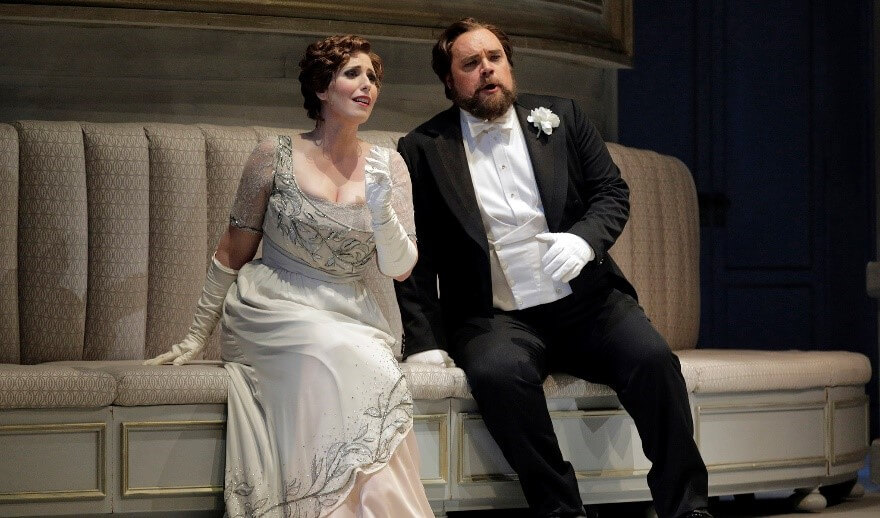Backstage with Matthew: The Birth of a New Arabella
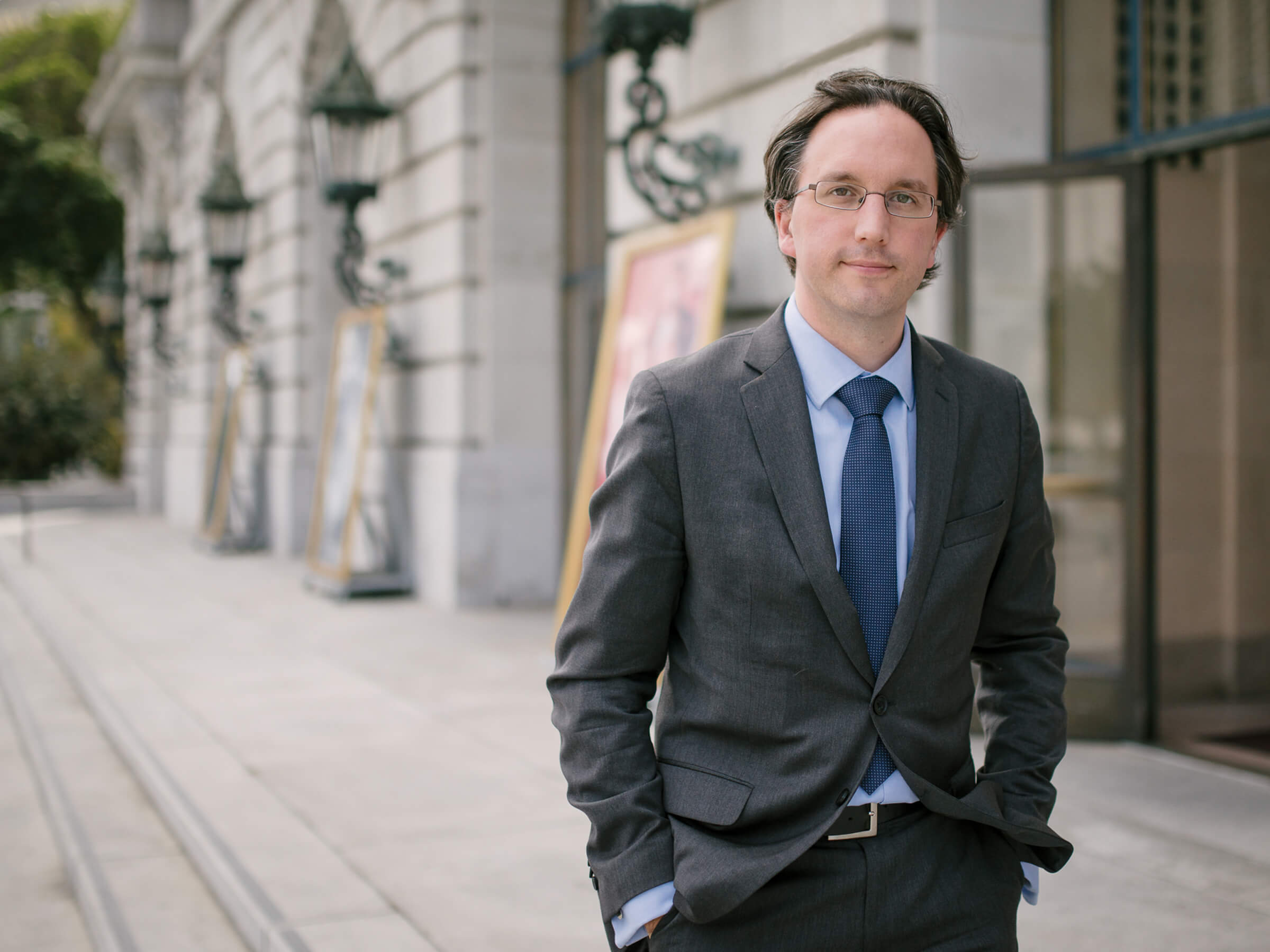
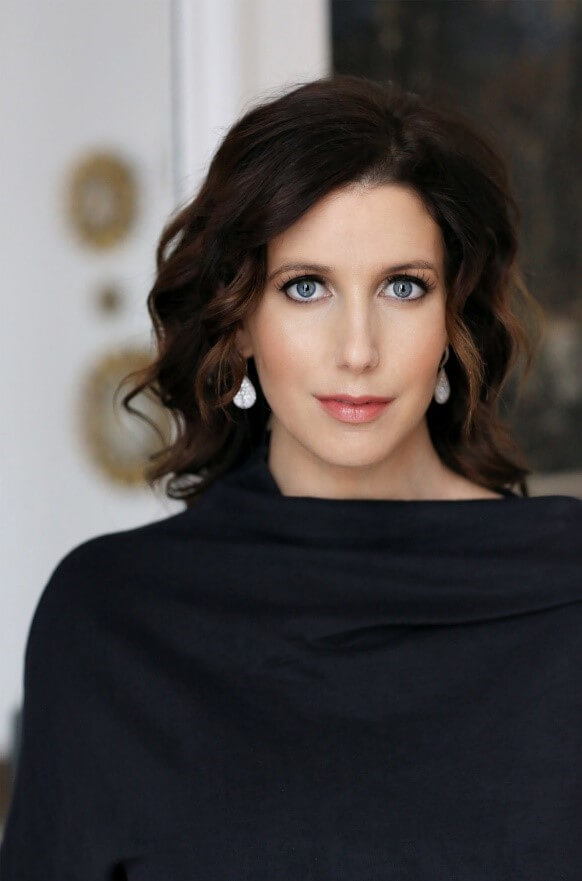
I caught up with Ellie the morning after the opening in the Littlefield Lounge at the Opera and asked her how it felt to have birthed the role. She said, with a wry smile: “Like the morning after a raucous night out. You don’t remember the whole thing, you think of it in flashes, and it all feels rather surreal!”
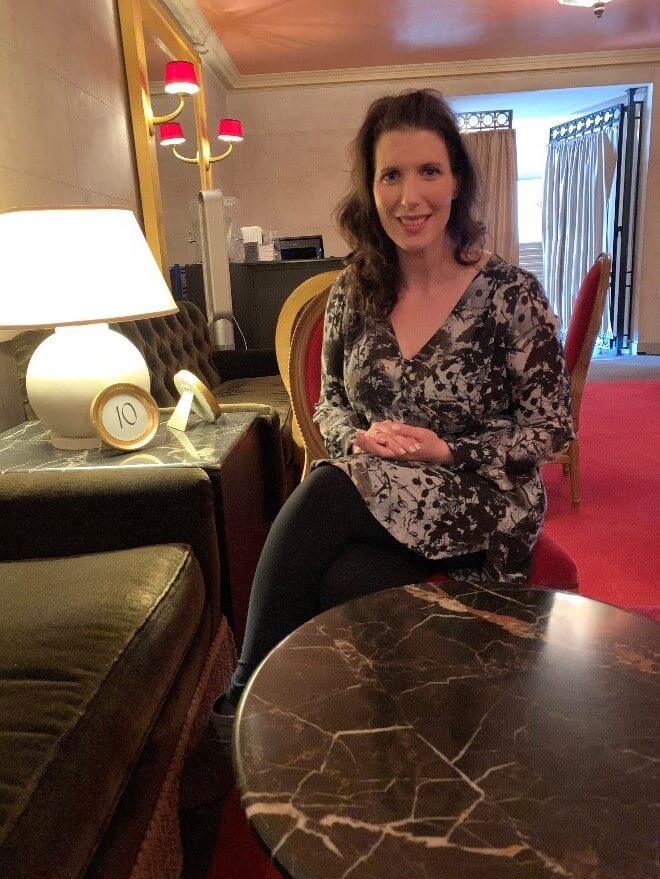
To take on a signature role like Arabella on a stage like the War Memorial is a glorious but daunting moment for a singer. As Ellie notes, if you’d have asked her in college (the Academy of Vocal Arts in Philadelphia) whether she would ever have imagined this moment, she would have said a resounding ‘no’. To be singing Arabella’s heart-melting lines in this vast auditorium, with your proud parents watching on, really is a fairy tale moment.
Ellie notes just how much buildup there is for a moment like this, and how much rides on the perfect confluence of preparation, health and artistry. So much is at stake in this first outing of a role, both in how audiences see you, but also in how you see yourself as an artist. But, once that opening is complete, the role is there. You have embodied it, you have shared it, you have realized the culmination of months if not years of preparation, training and coaching. You are now Arabella.
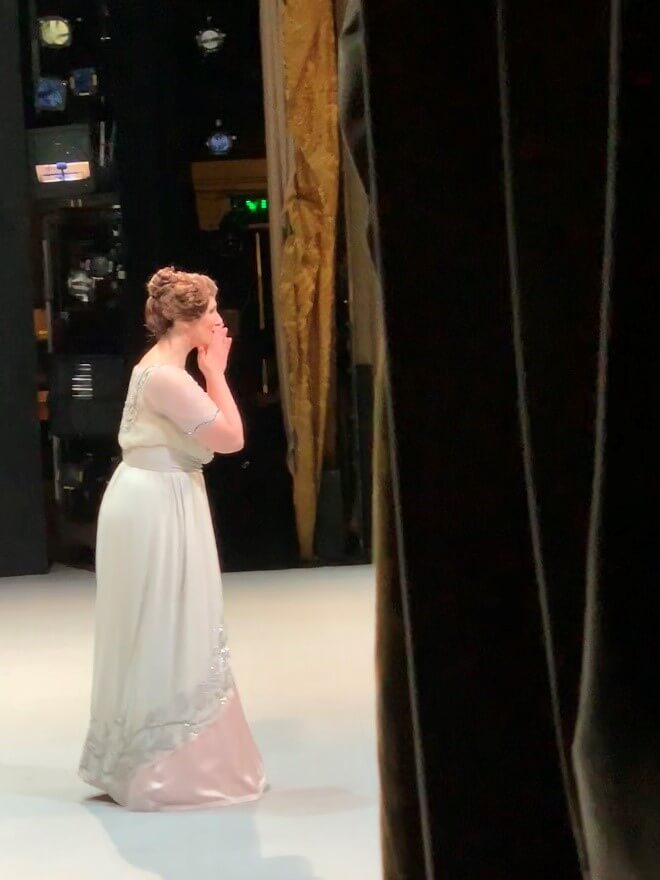
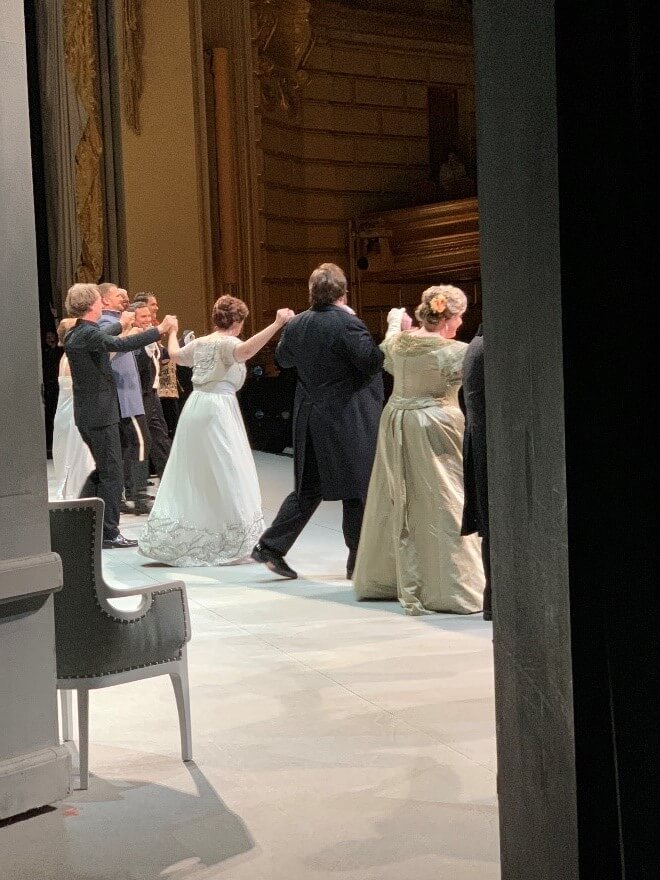
We began talking with Ellie about this role about three years ago, knowing that we wanted Arabella to be part of the inaugural season of programming by the new administration. So what did the process look like for Ellie between then and now?
Ellie’s repertoire on our stage in years prior has focused around Mozart, and her first interactions with Arabella were when her voice was lighter, singing the flighty arias of Zerbinetta and the Fiakermilli – two of Strauss’ light and ebullient roles! But she was already listening to lyrical Strauss roles and, a few years ago it became apparent to Ellie that her voice was coming into the right place for a role like Arabella. She began learning whole scenes of the lyrical Strauss operas like Arabella, Capriccio, and Daphne, to see if the repertoire would fit, and she found it a much easier fit in her voice than even the Mozart roles. As she notes, when a repertoire clicks with your voice technically, you know that something is right!
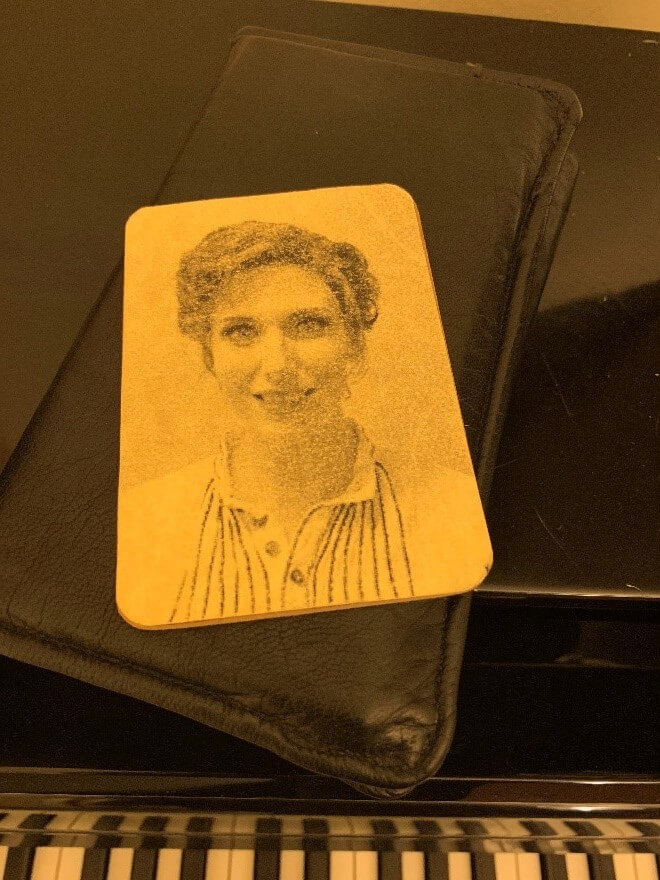
The little card with Arabella’s picture that Mandryka carries around with him and that ultimately leads him to his forever love.
Ellie likens the role of Arabella to the fundamental emotional intensity of Strauss’ songs. To take on this role you have to know where to ebb and flow out of that emotional world and into the faster, more domestic aspects. But by keeping grounded in Strauss’ songs, you retain that intimacy, so critical to this piece.
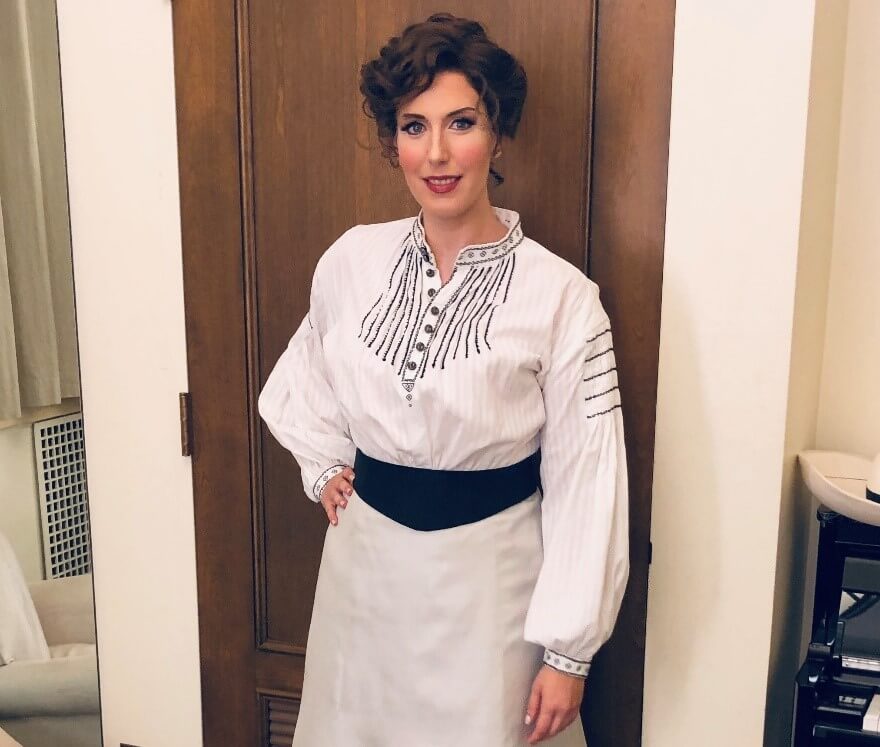
Ellie spent about a year just listening, studying, getting to know the role. She listened to the greats like Lisa della Casa, Gundula Janowitz, and Renée Fleming, but she also found lesser known interpretations by sopranos like Caballé, Varady and Steber. She loves the interpretations by the Slovak soprano Lucia Popp, and talks of the purity and naiveté that Popp manages to find. But, as Ellie notes, you have to be careful never to learn a role like Arabella from recordings: “There are so many interpretative oddities, that you have to go straight to the score and learn it from there and work meticulously with the metronome.”
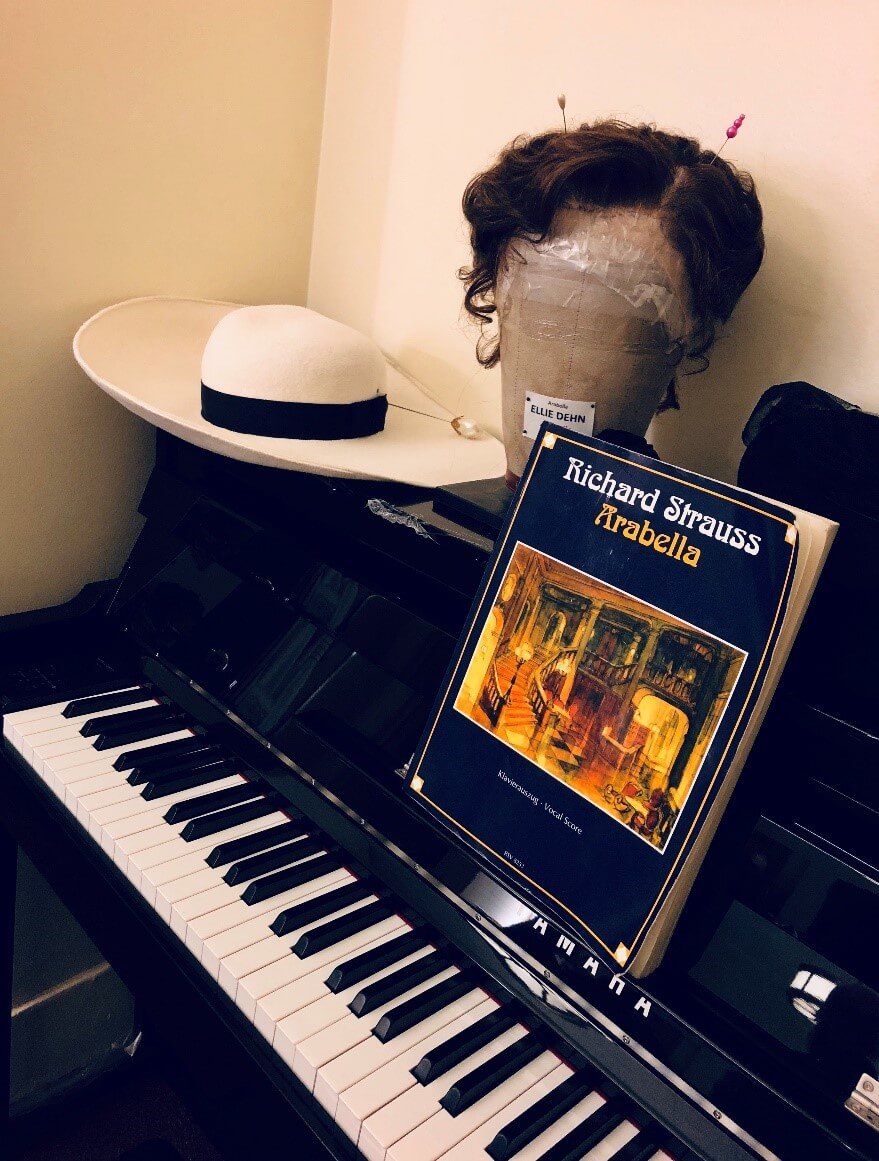
In preparing the role, Ellie spent time with her voice teacher, Julia Faulkner, who has sung the role un-der conductor Christian Thielemann, as well as one of Strauss’s assistant conductors. She gave Ellie some wonderful stylistic suggestions, as did German diction coach Marianne Barrett (who coached German on the Ring for us) and her other most trusted coaches including Laurent Philippe and Tony Manoli. Everyone had a different opinion, and this leads to an important lesson for a singer: you have to learn how to filter advice and find what works for you. Ellie actually seeks out a huge amount of input on purpose: when it becomes a multiplicity of voices, it’s much easier to do that filtering.
So, preparations were going very well, and the three-year time-frame was feeling very good, but then two things happened. Two things that were to set Ellie’s preparation for Arabella on a rather different course.
First, we found last year that we needed a new Manon. We offered the role to Ellie and she joyfully accepted, but it meant adding a new major role in the midst of her Arabella preparations. She did so with ease, taking on this beautiful French role with great style.
And then, a few months before Manon opened, Ellie became pregnant. Between Manon and pregnancy, a three-year plan for Arabella suddenly felt more like a one-year plan. But Ellie was not daunted! She is a consummate professional who takes on projects with amazing discipline and work. After completing the Manon at five months pregnant (which is amazingly impressive if you remember that flying she did from the upper to lower levels in the Cours-la-Reine scene), Ellie used that time pre-baby’s arrival to immerse herself into Arabella, learning the role completely before the baby came and delving deep into language, music, text and other source materials. She also made sure she was singing as much as possible. She credits singing up to her 9th month as critical to having the physiology to get back quickly to singing after the birth. Singing almost to full term gave her a fabulous vocal support, and that support has been hugely valuable for a role like Arabella.
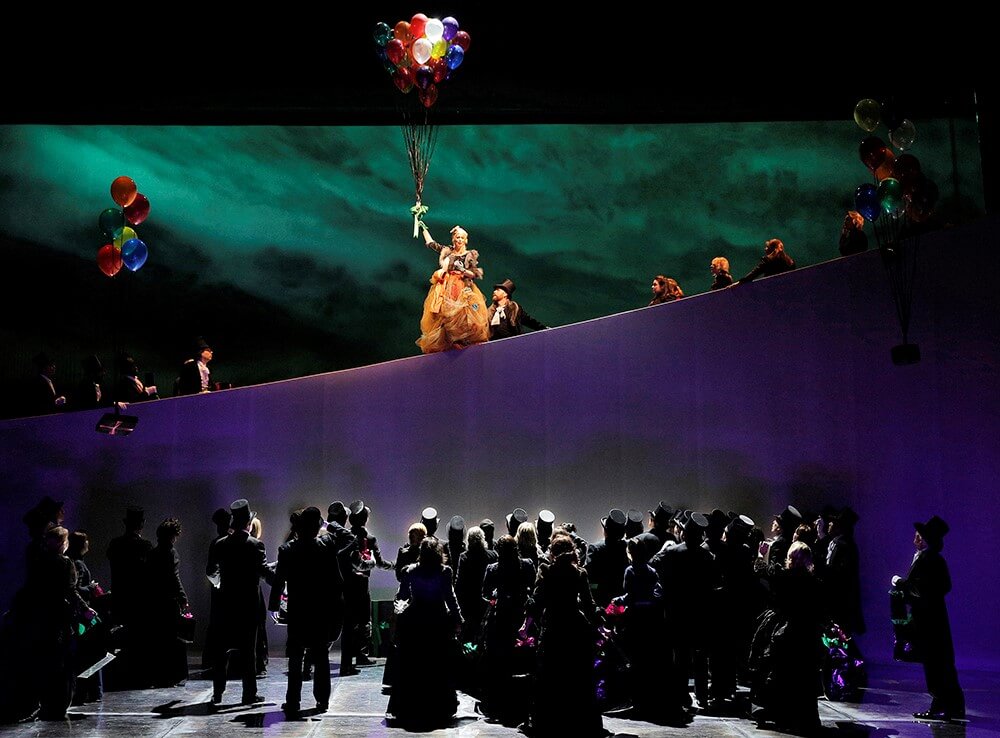
Just a month after the birth, Ellie was back singing with Beethoven’s 9th Symphony. How have things changed post birth? She feels that her voice has become richer and deeper, but without affecting the top of the voice. She feels that it has led to a more womanly period of singing for her, again a wonderful attribute for an Arabella. But it’s also affected how she thinks emotionally on stage – how you internalize dramatic situations, and what becomes affecting to you as a human being. Opera is an expression of monumental emotions, and as an artist, you react to those emotions differently as you go through major life changes and sometimes you have to be careful. You can’t get deep into your thoughts on stage, no matter how much you are resonating with the emotions you’re portraying. You have to remain in the moment. You can’t get swept up in the beauty of the score, no matter how much you want to savor it. And that is difficult with such a lyrical score as this!
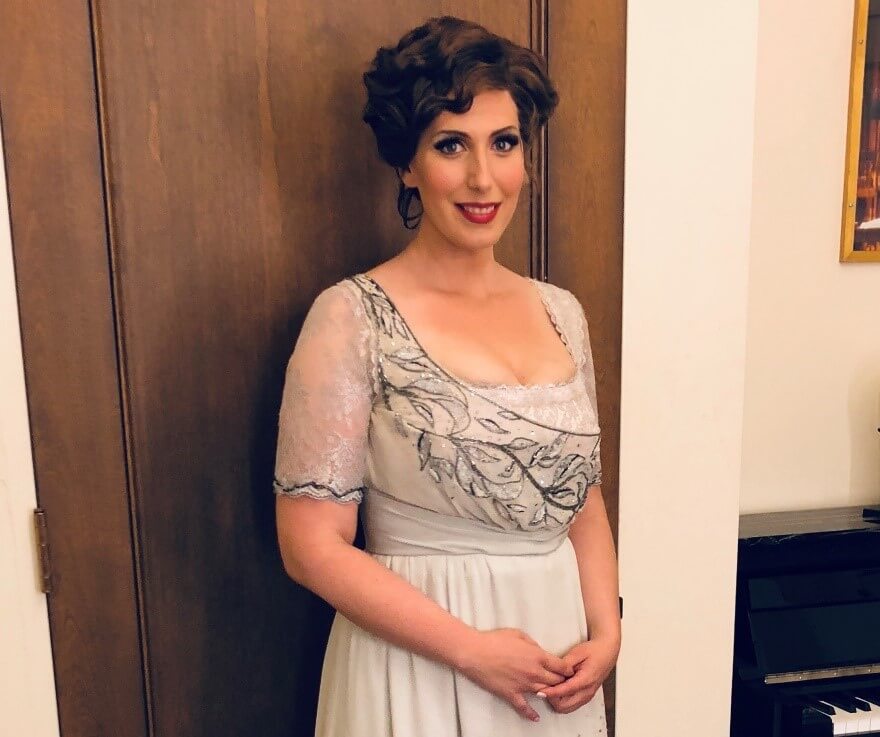
Childbirth has also led to logistical changes. Now, Ellie is finding that she is much more selective about the projects she’ll take on. On the one hand, there is a greater urgency to get work: now she has a beautiful baby to care for. But on the other hand, she wants to ensure she can spend as much time as possible, particularly in these formative years, with her baby. And so it’s important to be incredibly judicious about what you take on and where.
Oh yes, and the baby’s name? Well, after she was born, it wasn’t quite clear what the name should be. Ellie had thought about a few things but they didn’t feel right. But gradually something came into fo-cus, a name that has a beautiful story behind it … Arabella!
It is so heartwarming to think that both this incredible role debut and this incredible little girl both came into the world together. Ellie is calling her R.B. for short!
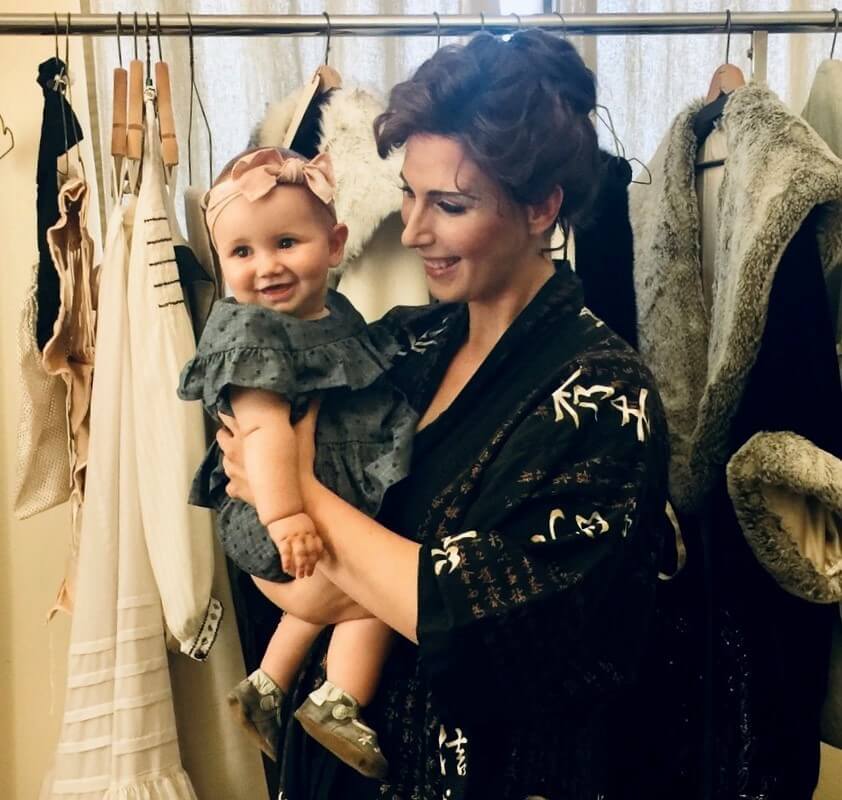
Life with R.B. has meant some major changes in the way Ellie approaches the rhythm of her job as a singer. Ellie’s mother, Catherine, is able to travel with Ellie and R.B. which is a huge help in these early years. But, no longer is Ellie’s time her own, and that resulted in a rather different approach to the opening day of a production this time.
In the past, Ellie would have slept in on the day of an opening performance, getting up around noon. She would have relaxed with some television, and then spent hours warming up with yoga, breathing, jogging and steam. Now, things are rather different: she wakes up when R.B. decides it was time to get up, early in the morning. She tries to take some cat-naps while R.B. naps, and she leaves the house earlier to get some steam in a sauna because there was no way she could have done that at home. (She’s also snagged a night here and there at a hotel!) It is a different rhythm, and one she wouldn’t have thought possible a few years ago. But, as she notes, she’s learning to be a morning person, and she has found work-arounds that have allowed her to get everything she needs done before going on for that first curtain. As with all singers who have had children – you adapt, find new ways, and find that balance between the new parts of your life. And, as Ellie notes, it’s no longer about you – you have to put your ego aside. You’re now doing this for someone else.
R.B. is musically inclined it seems. There were two pieces that Ellie was singing while pregnant with R.B. – Manon and Handel’s Messiah. She reacted to both pieces in the womb, kicking vigorously during “The Trumpet Shall Sound” and “He is like a Refiner’s Fire” from Messiah. But, now that she is born, she also reacts to Manon and Messiah. When R.B. is crying, Ellie will put on a little from either piece and suddenly R.B. will calm. She’s a fan of Arabella as well and Ellie can keep R.B. quiet for long car rides by singing through the role. Opera is quite literally coursing through this little baby’s veins!
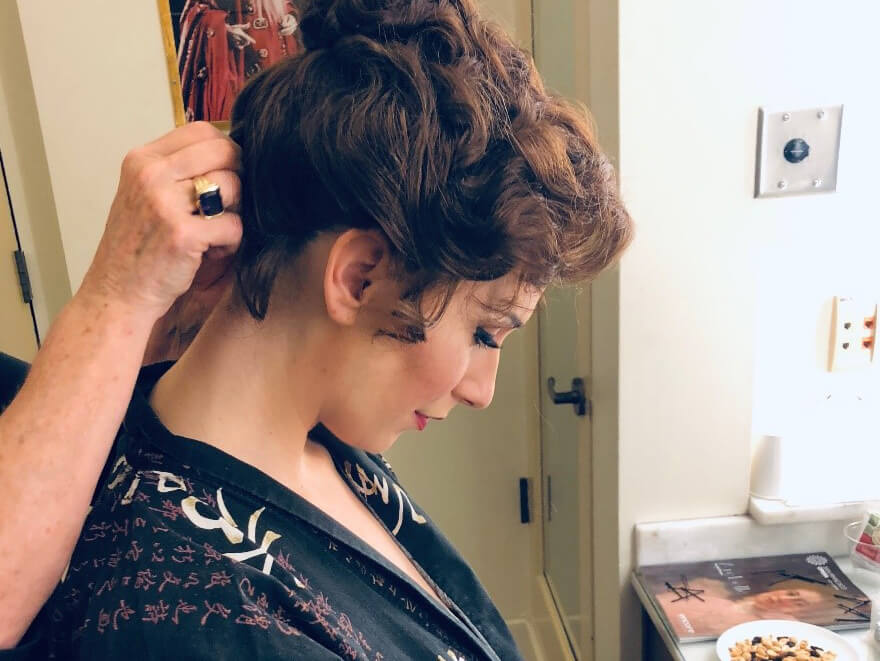
It’s been such a privilege to see Ellie bring Arabella to life on our stage and I hope that you will get a chance to see her in this if you’ve not already. It’s some of the most transfixingly beautiful music ever written for the human voice (take a listen to the great duet of Act I) and in Ellie’s interpretation it soars with such wistful humanity that she allows us to find blissful catharsis. It’s been twenty years since we’ve had Arabella on this stage and it’s a joy to welcome it back and to welcome Ellie to this gorgeous role.
